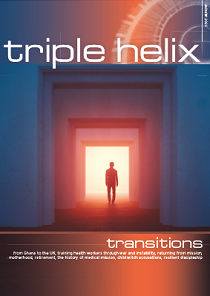In her interim report in February, Dr Cass stated that 'a single specialist provider model is not a safe or viable long-term option in view of concerns about lack of peer review and the ability to respond to the increasing demand.' [3]
As far back as 2004, clinicians and parents were expressing increasing concerns about the quality of assessments, the push for unquestioning affirmation of a child's gender identity, and the lack of safeguards. [4]
The proposed solution is to reinvent services for children and young people questioning their gender and relocate them to regional services, resulting in 'improved access to services with flexible pathways that better respond to [children's] individual needs'. [5]
A group of clinicians welcomed the news: 'We support her [Dr Cass'] view that the services should have established academic and education functions to ensure that ongoing research and training is embedded within the service delivery model'. [6]
Mermaids also greeted the news positively 'England's gender health services are set to expand, and those who are currently GIDS patients or on the waiting lists will transfer to the new service without additional delays'. [7]
Exactly what services will look like in the future is not yet apparent, but recommendations from the Cass Review are clear that 'Children and young people with gender incongruence or dysphoria must receive the same standards of clinical care, assessment and treatment as every other child or young person accessing health services'.[8]
Cass is clear that we must move away from the situation where primary and secondary care staff 'feel under pressure to adopt an unquestioning affirmative approach and that this is at odds with the standard process of clinical assessment and diagnosis that they have been trained to undertake in all other clinical encounters.' [9] Clinicians are also urging the government to address the situation in schools: 'We would strongly advise the government to look closely at materials that are being taught in school by Stonewall, Mermaids, Gendered Intelligence, and many other groups, who teach children gender identity theory as if it is fact. Until this is addressed young people will be at increased risk of interpreting their difficulties as proof they are 'trans'.' [10]
































